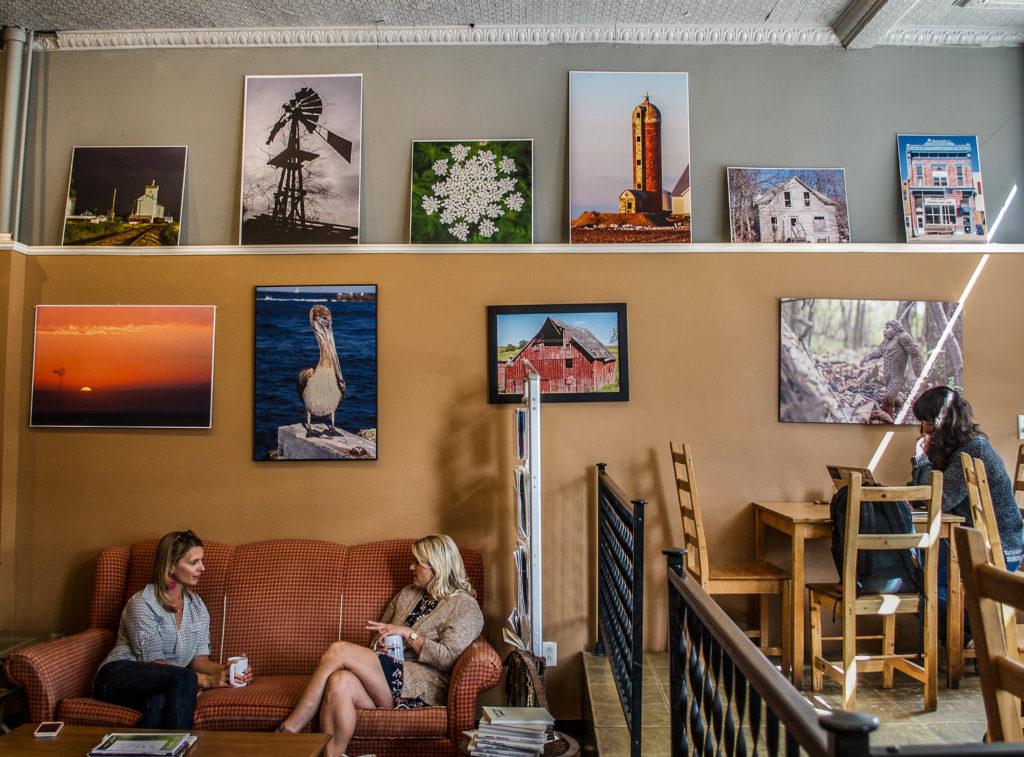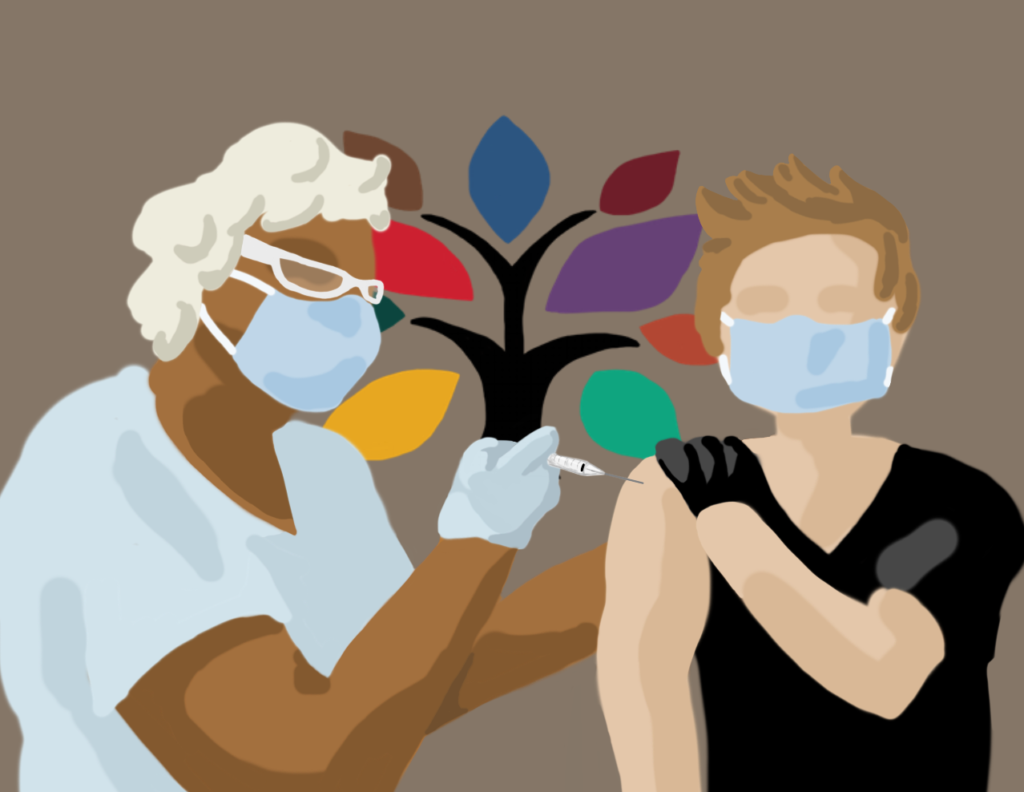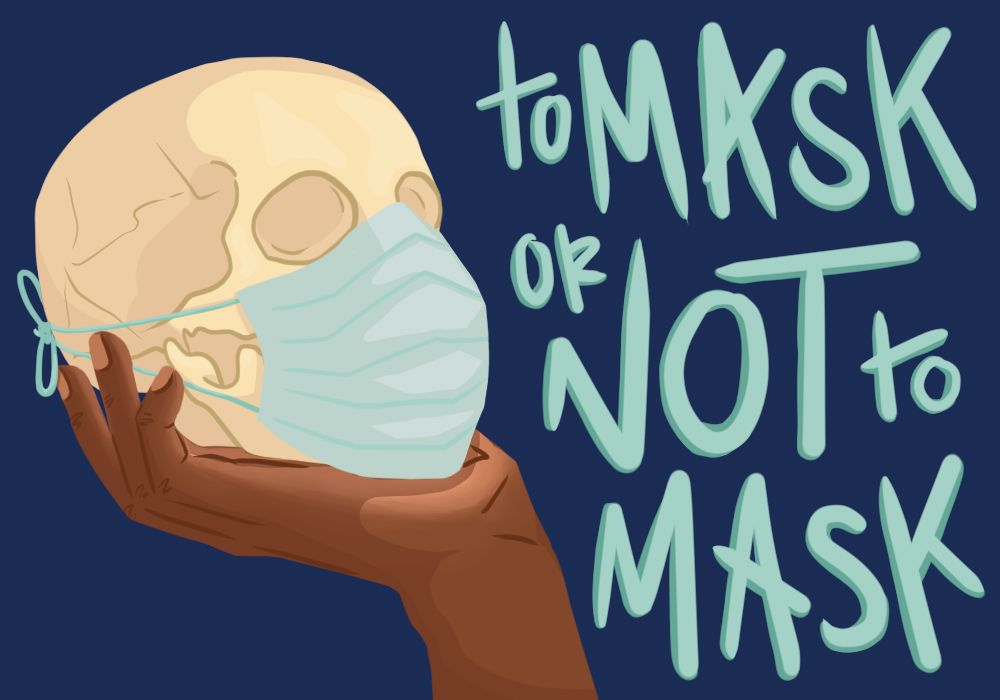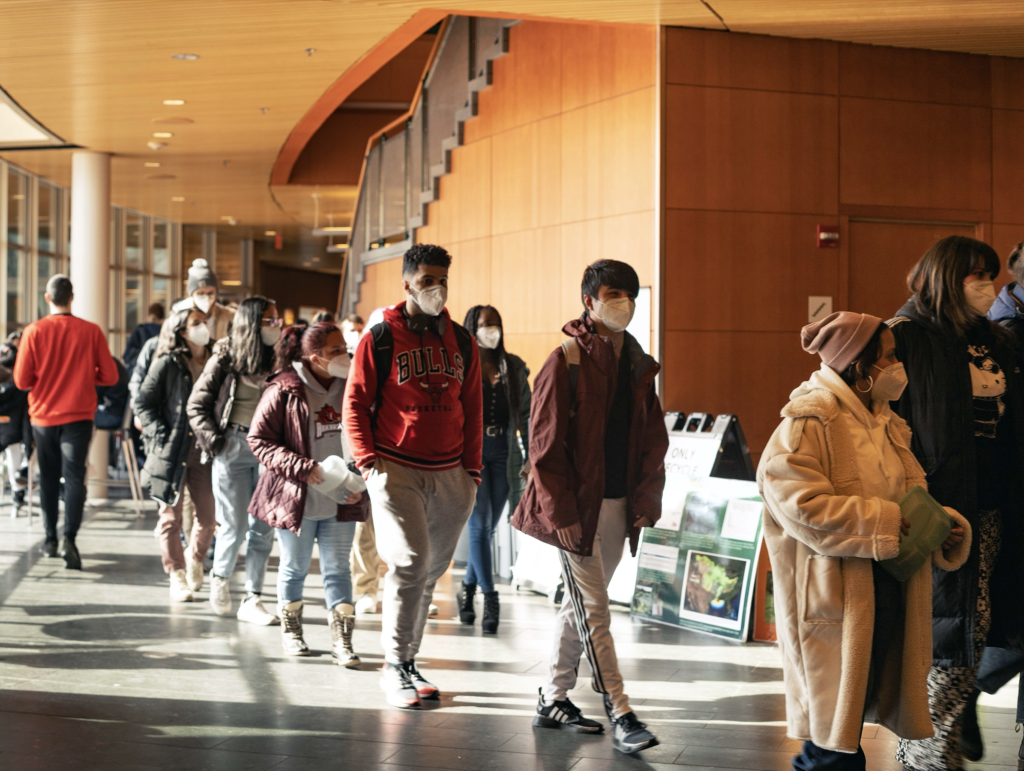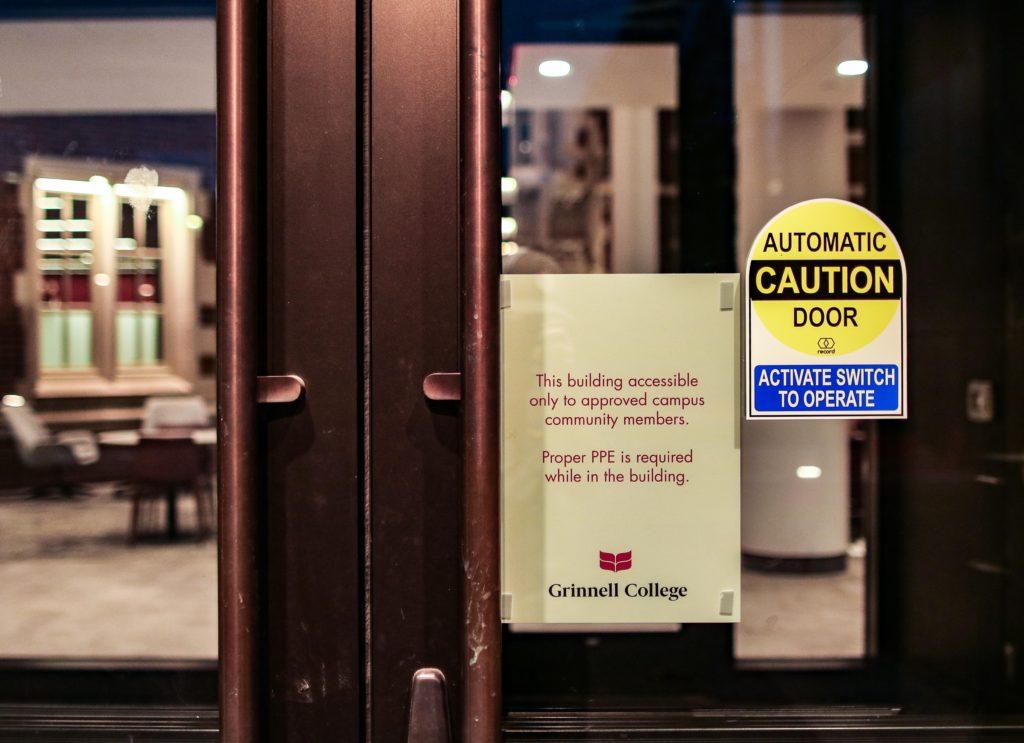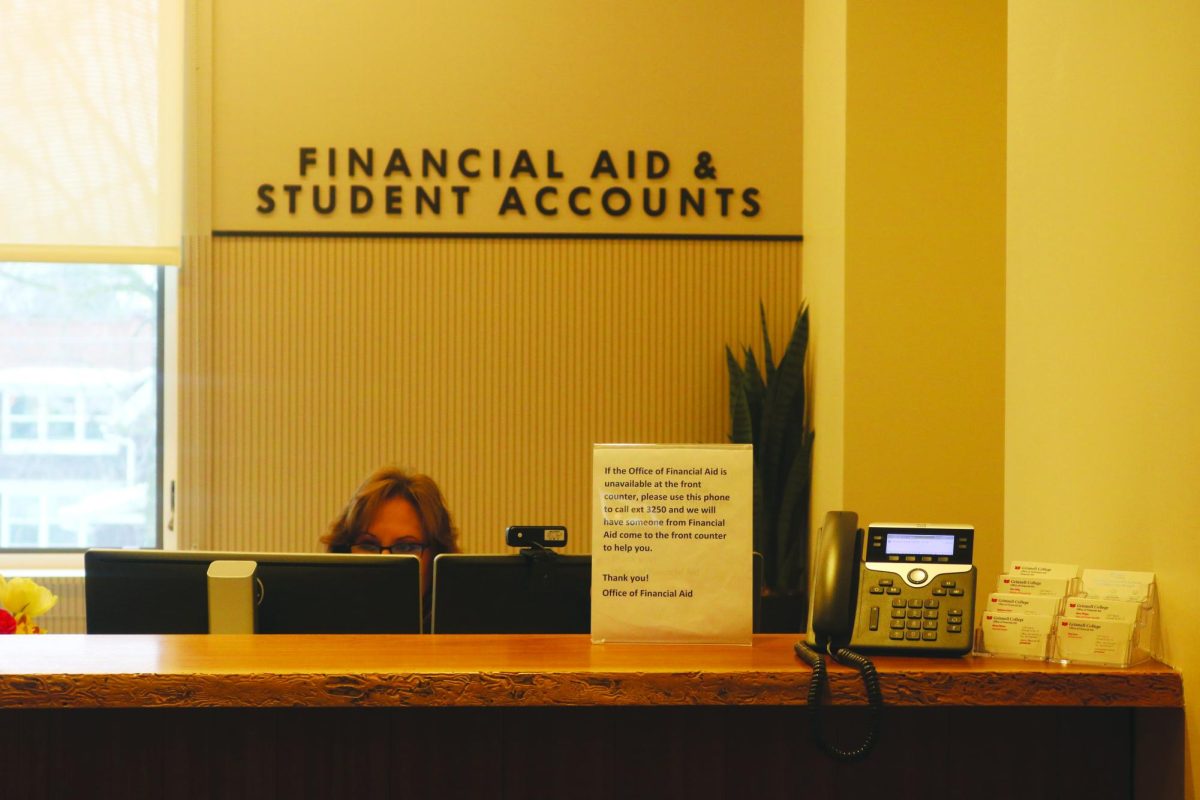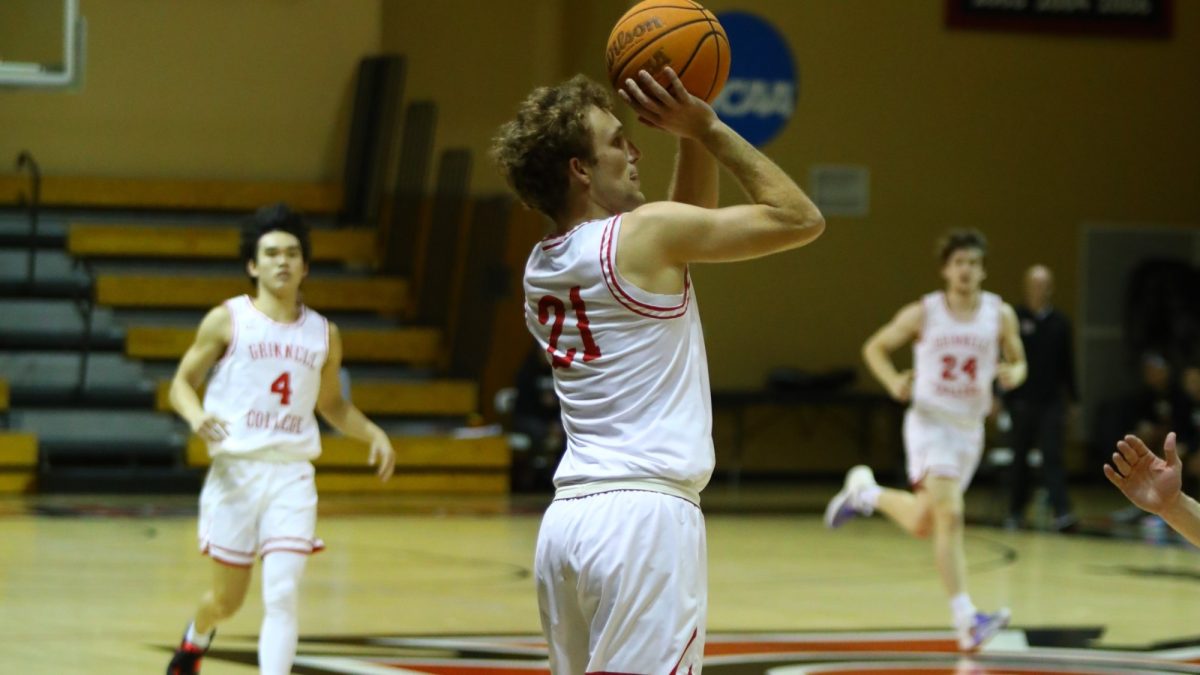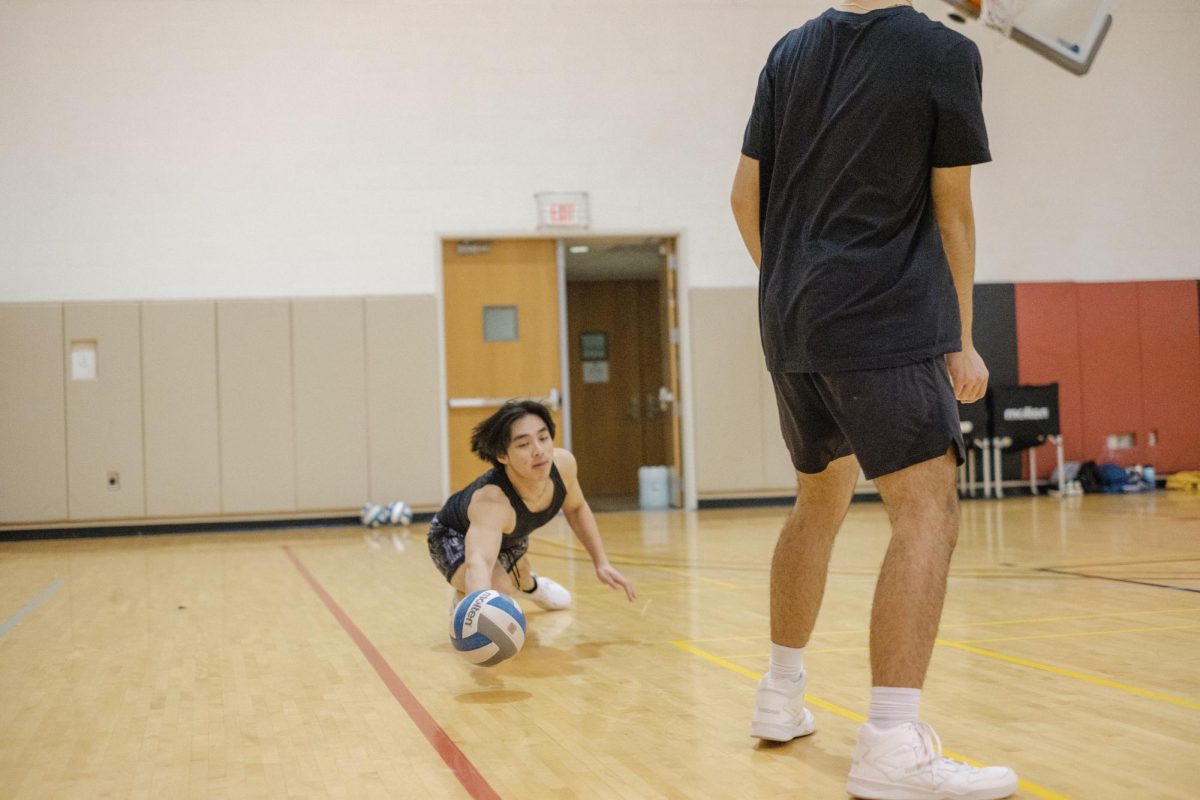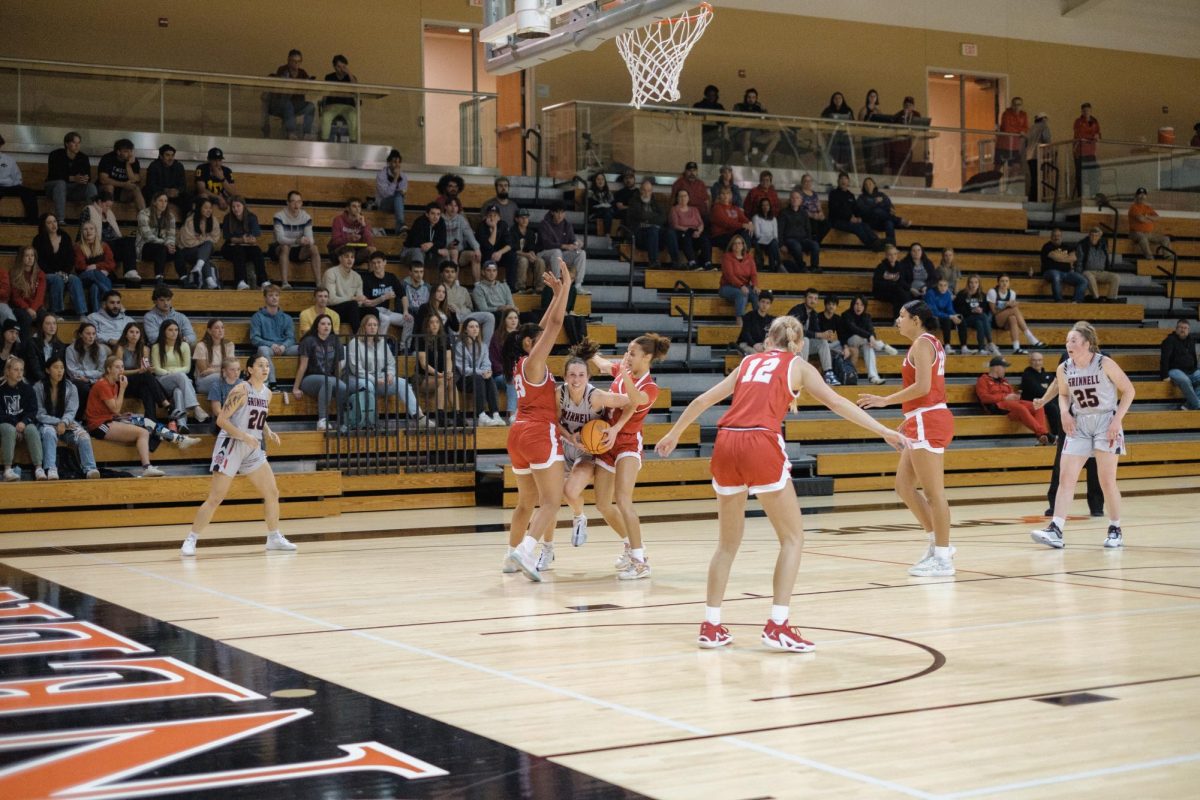Businesses in Grinnell are struggling due the state-wide closures in response to the growing concerns over the COVID-19 virus, including the Grinnell College campus. The novel virus is spreading throughout the world, with more Iowans becoming infected every day. Grinnell College and its students are a major source of revenue for the small, local businesses in the city. With the loss of students and other major revenue sources, such as graduation and Reunion, many small businesses are worried about what is next.
Iowa Governor Kim Reynolds declared a state of emergency on March 17 and ordered the closure of all bars and restaurants, with the exclusion of carry-out orders, along with fitness centers, casinos and movie theaters until March 31. Reynolds also called upon Iowans to limit gatherings to under ten people.
On March 26, Reynolds extended this required closure of previous establishments and carry-out only until April 7. Other retail businesses, such as clothing and furniture stores and cosmetology establishments are also closed until the April 7. Non-essential surgeries and procedures have been postponed as well.
These directives create a large amount of uncertainty and stress for local business owners in Grinnell.
“As of last week, we were running about 30 to 39 percent of our normal traffic through Saint’s Rest. … Lucky Cat is slowly climbing out of the hole that it was in, but they’re just coming to their own breaking point. We’re not breaking even at Saint’s Rest and we’re starting to break even at Lucky Cat, so either way, we’re in a hole,” said Sam Cox, owner of Saints Rest and Lucky Cat drive thru.
The state of Iowa released a Small Business Relief Grant Program and Tax Deferral plan to aid struggling establishments. The Grinnell Area Chamber of Commerce has offered low interest rate loans and the Grinnell Small Business Relief Grant (GSBRG). Eligible businesses must be in the 50112 zip code or a chamber member prior to March 18. The GSBRG was started with $25,000 donations from both Grinnell College and Grinnell Mutual Reinsurance.
“The grant is meant to offset those ongoing costs for businesses, not meant to help with any loss of revenue or anticipated loss of revenue, simply because we just don’t have the funds to be able to do that,” said Rachel Kinnick, President and CEO of the Grinnell Area Chamber of Commerce. “That would be wonderful if we did, but really, it’s about keeping the lights on so that when they do get through this, when we do weather the storm, that [businesses] can continue and dive back in to where things were.”
As Monica Chavez-Silva, Assistant Vice President for Community Enhancement, wrote in an email to The S&B, grants range between $500 and $2,5000 to help cover unexpected business expenses related to the COVID-19 health crisis. Applications for the GSBRG are individually reviewed by a committee.
An additional $8,500 dollars has been raised from community members, making the fund just shy of $60,000 dollars. Individuals can give to the fund on the Chamber’s website.
Besides the GSBRG, Grinnell College has been highly involved with the community. Chavez-Silva wrote that such actions include “arrangements with Hotel Grinnell for housing overflow needs, helping with community childcare for essential workers (such as health care providers, first responders and grocery workers), dining donations to MICA’s food pantry, working with a community coalition to provide food assistance for those who need extra assistance during this time and adapting the College’s micro-grant and mini-grant programs to support local non-profits during the crisis.”
Chavez-Silva also noted that Grinnell College students back home in China have offered to send personal protective equipment (like face masks) to Grinnell. The College has partnered with the students to donate the equipment to local healthcare facilities.

In addition to the loan and grant opportunities, the Chamber has released information guides to aid businesses through the rapid changes taking place, such as restaurant and shopping guides to highlight and support local establishments.
“We’ve really tried to step up and be an information source for all sorts of businesses and organizations in the community who are making rapid changes to their everyday operations,” said Kinnick.
From restaurants to clothing stores, every business is feeling the economic impacts the novel virus. Business owners are uncertain of the future and trying to make it through each day.
“Your first way to address [what has happened] is just shock or just being completely stunned by the turn of events. For as much as we watched this evolve around the world, I didn’t see this coming,” said Cox.
Most businesses saw a dramatic decrease to their traffic and revenue, not only due to the closure of the College, but due in part to community members staying home.
“With [Grinnell College] closing, we’ve probably lost about 25 percent of our business. … And with the rest of the town closing we probably lost another 25 percent,” said Jarrod Diehm, owner of Jay’s Deli.
Grinnell restaurants have had to become creative in response to the sudden closures to replace lost revenue. Restaurants operate with a rear cash flow, meaning that they will use the current week’s income to pay for the previous week’s bills. With unforeseen changes to their business models, many owners are uncertain of how to recoup costs.
“We’ve been hit pretty hard for the most part. … May is our best month of the year by 40 percent. It’s hit pretty hard. Like a gut punch,” said Paul Durr, owner and manager of Prairie Canary and Hometown Heroes.
Durr now offers take-out and delivery options at both establishments. He also introduced family meals, a large order with sides and desert to feed a large family for a set price. But still, these changes are not enough. Durr has had to make drastic changes to his staff.
“We’ve let most of our part-time people go. Typically, I employ about 60 people between both places. And we’ve kept two or three full-time staff at each place. … They don’t have a job anymore until they tell us we can open back up. Even so, this is going to be an ongoing hangover for the next 12 to 18 months before we can get back to normal,” said Durr.
Like Durr, Cox had to lay off her part-time employees, a decision that was difficult for her, not only as an employer, but as a friend.
“I can’t change rent, I can’t change utilities, I can’t change my internet. I can play with my cost of goods and operations, but there’s a lot that I can’t do. The only thing that I really can do is payroll. So unfortunately, what that meant was me having to cut all my part-timers’ hours. … It’s heartbreaking,” said Cox. “But the answer is, if I don’t have a business standing at the end, I won’t have a job for anyone.”
Cox, Diehm and Durr all applied for the GSBRG to cover their fixed costs and make it through the next month or two.
Cassidy Christiansen ’20 is a part-time employee at both Saint’s Rest and Lucky Cat. They rely on their off-campus income to pay their rent and living expenses.
“My parents are currently also not working for the next month. It’s not like I can rely on them for an outside source of income. So [not being] able to work makes it really difficult to pay my bills,” Christiansen said.
Christiansen has noticed the drastic change in downtown Grinnell. Since the last week of school, they saw many students and residents out and about. In less than a week, downtown Grinnell has a different ambiance than they would expect in the spring.
“It’s turned into a bit of a ghost town over the course of a week,” said Christiansen.
Craig Cooper, owner of Bikes to You and local landlord, echoed this sentiment. Due to the decrease in foot traffic, Cooper’s bike sales, repairs and other services have drastically slowed. “By having the student population leave, that’s a fair portion of our service business at this time of year,” Cooper said. “Business-wise, I think there’s going to be an impact. And we’ll have to try to mitigate.”
Unlike Cox, Diehm and Durr, Cooper has not applied for the GSBRG. Cooper said that he is fortunate to have equity in buildings and savings. He hopes that these assets will help him to weather the storm.
“My suspicion is, at least at this early stage, there are going to be other people that need it more than I do. I’m prepared to sit on the sideline here, and maybe that’s a bad decision. … I’m not saying I won’t need some assistance down the road, but right at the moment I’m going to try to weather it,” Cooper said.
Colleen Klainert, owner of Solera Wine Bar, hopes to weather out the storm as well. As a sole proprietor, Klainert is in a slightly different position than other small businesses. Klainert does not have payroll to play with or employees that rely on her paychecks. But, like every other establishment, she feels the loss of the College students.
“The loss of college students and the celebrations that happen at the end of the school year will certainly be felt financially but also spiritually. I enjoy when groups of students dress up, come in and toast to their relationships and successes they’ve had throughout their four years here. I feel I’m in and honored position to be hosting families from all over as they celebrate their student’s accomplishments,” wrote Klainert in an email to The S&B.
In response to the changes that seem to change every day, Klainert has adapted Solera to offer new hours and dining options. Her business is now open seven evenings a week and offers a “take & bake” special with pizza, cookies and a choice of wine. While this new business model has been successful, Solera was not intended to provide take-out options.
“I designed Solera to be an intimate space where people can hang out and socialize. My goal was to create and atmosphere like your own living room. I love when I see shoes off, feet up, folks being lazy and enjoying each other and a good glass of wine. The idea of getting them what they need and quickly having them leave runs contrary to my sense of hospitality,” wrote Klainert.
Despite these difficult shifts, Klainert and other business owners feel that the community has been supportive. Grinnell residents have utilized Facebook groups to rally together in support and highlight their favorite businesses. Many use the hashtag #GRINNtogether, something that the Grinnell Chamber of Commerce started to help foster a sense of solidarity in the face of the pandemic.
“I think the community has rallied together around each other and as much as they have around our small businesses, which has been great,” said Kinnick. “It’s been really fun to see people posting ways that they’re supporting local businesses, but also just things that they’re doing to build positivity in a time where there’s so much unknown which creates challenge and fear.”
“I have seen a community of superheroes,” wrote Klainert. “Customers have been so very supportive of Solera and other places as well. I have spoken to many who say that they rotate from one to another establishment every night.”
Durr, owner of Prairie Canary and Hometown Heroes, has noticed how residents have supported his businesses, even though everyone is struggling. “We’ve had people come in and buy large gift certificates, trying to show their support. I [see] a lot of the same faces coming into Prairie delivery and take out and take-home meals. They’re doing what they can. Everyone’s in the same boat,” said Durr.
“I’ve been really touched by the way the community is reacting and supporting each other through all of this and I think that because of that the community will be able to recover. I think it’ll take some time, but I think it’ll happen because people are doing the right thing for other people,” said Christenson.
Cooper, owner of Bikes to You, believes that the changes taking place will help others to prioritize what is important. “I think that when there’s a crisis or hardship, is a time where people begin to realign what’s important to them and what their priorities are,” he said.
Angela Harrington, owner of Hotel Grinnell, has felt the impact of the changes differently than other businesses, as it is harder for the community to support the Hotel in a time of social-distancing and self-isolation.
Hotel Grinnell is reliant on Grinnell College, and 60 percent of its revenue is associated with the College. The loss of the spring semester has hit Harrington particularly hard.

For Harrington, her projected revenue changed drastically overnight. “This next 90 days is typically the highest quarter of the year. I would have done a half million dollars’ worth of business between stays, graduation, the trustee event, Reunion, weddings, that sort of thing. It’s our high time and it carries us through the time when the College is gone over breaks,” she said.
Harrington was flooded with calls from parents and students worried about where they could stay after being asked to leave campus. She had initially made an offer for College students to receive a discounted price for a hotel stay. A one month stay was priced at $450 dollars — roughly a 90 percent discount from the regular cost of a month-long stay. Soon after the offer was released, Harrington was asked by the College to rescind it.
“About twelve hours [after the Hotel’s offer], it was thought by the College, that [the offer] would provide incentive for people to stay when they didn’t need to. What we really needed to do was get people home and safe,” said Harrington.
While Harrington feels both the financial and emotional loss from not be able to house students, she understands the logic. “There aren’t very many cities where the College president worked for the National Institute of Health. I thought, ‘I think we all better sit down, shut up and listen to him and follow the College guidance.’ … There’s a brain trust [at the College] that we are really very lucky to have,” she said.
Every business in Grinnell is affected by the changes taking place and faced with uncertainty. As Kinnick said, these changes are “a necessary evil.” It is crucial to make these changes to both flatten the curveand ensure that the limited healthcare resources in rural Iowa are not overwhelmed.
“I’ve been really impressed by the innovation that our businesses have shown in the last two weeks. They were really thrown some major curveballs and had really difficult decisions. And a lot of them have become incredibly innovative incredibly quickly,” said Kinnick.




























































